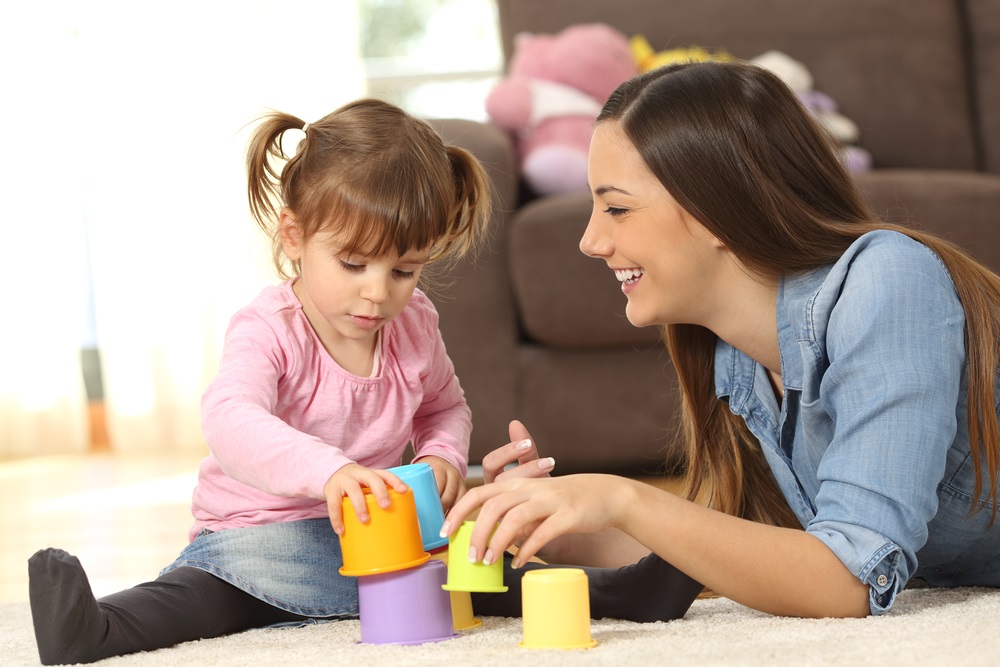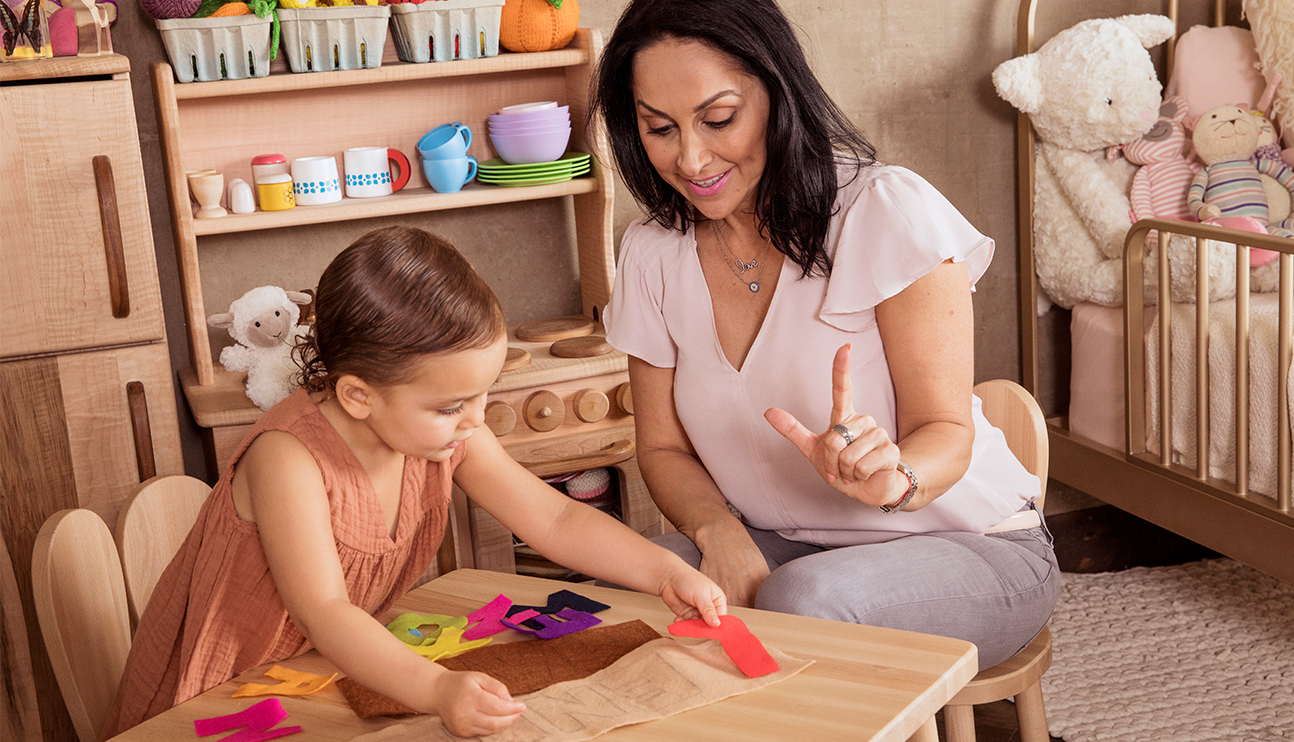-
 Global Website
Global Website
- Follow Karihome
Your child will make a lot of sounds. Cooing, gurgling, and, of course, crying are all examples of this. Then, usually by the age of 1 year, your child will say their first word.
Whether it's "mama," "dada," or something different, this is a major milestone and an exciting time for you.
However, as your child grows older, you may wonder how their language skills compare to other children their age. To clarify, children learn to speak at different speeds. So, if your child speaks later than an older sibling, there is usually nothing to be concerned about. At the same time, it is beneficial to understand typical language milestones.
This article will discuss common language milestones, as well as a few fun activities to encourage speech.

In the toddler years, your child’s language starts to explode, as your child moves from using single words to putting together simple sentences. Your child is also starting to understand and follow simple requests, like ‘Bring me your book’ or ‘Wave bye-bye’.
But toddlers often don’t have the words to express big emotions or talk about complex experiences. With your help, your child will start learning how to use words to communicate better.

Of course, the age ranges listed are only guidelines. And the truth is that some children develop language skills later than others. This does not imply that there is an issue. Although your child will most certainly catch up on language skills at some point, there is much you can do in the meantime to encourage speech and assist them develop their language abilities.
You don't have to 'teach' your toddler to speak. He will learn through everyday encounters, particularly those with you.
It's all about listening in and seeing what your child is interested in when you're with them. Then you can offer a comment or ask a question, and your child will have time to react. If your child points to an insect in the garden, for example, you could say, "Look at the little green beetle." I'm curious what it's up to.' Then watch to observe how your child reacts.
When you share these kinds of experiences with your child, it's critical to give her time to find words for her thoughts. Rather than trying to put words into your child's mouth, this is about waiting to hear what she says.

Reading to your child as much as possible every day is one of the best things you can do to encourage language development. One 2016 study found children are exposed to a broader vocabulary through having picture books read to them than hearing adult speech.
In fact, according to a 2019 study, reading just one book each day can translate to children being exposed to 1.4 million more words than those children who aren’t read to by kindergarten!

You don't have to be a sign language expert to teach your child a few basic gestures. Many parents have taught their toddlers to sign words such as "more," "milk," and "all done." Young children frequently learn a second language faster than adults. They may be able to communicate and express themselves at a much younger age as a result of this.
You will sign the word "more" while saying the word at the same time. Repeat this process until your child can understand the sign and correlates it with the word. Giving your toddler the option to communicate through sign language may make them feel more confident in their communication. Helping them communicate with less frustration might help create a better environment for learning more language.
Because your child cannot communicate, this does not imply that you should sit in silence all day. The more you communicate and express yourself, the easier it will be for your toddler to learn language at a young age.
If you’re changing your toddler’s diaper, narrate or explain what you’re doing. Let them know about your day, or talk about anything else that comes to mind. Be sure to use simple words and short sentences when possible.
You can also encourage talking by reading to your toddler throughout the day. While you're cooking together, you can read the recipe. Alternatively, if you're taking a stroll around your area, read street signs as you approach them. You can even sing to your child maybe their favorite lullaby. If they don’t have one, sing your favorite song.
Extending your child's responses is another technique to help them extend their vocabulary. For example, if your child sees a dog and says "dog," you could respond, "Yes, that's a huge, brown dog."
This strategy can also be used when your child drops words in a phrase. Your child may say, "the dog is big." You can elaborate by saying, "The dog is enormous."

You can also encourage communication by giving your child choices. Let’s say you have two juices and you want your child to choose between orange juice and apple juice. You can ask your toddler, “Do you want orange, or do you want an apple?”
If your toddler points or gestures their response, encourage them to use their words.

But even if you put forth these efforts to get your toddler to talk, they might have difficulties with verbal communication. Symptoms of a language delay can include:
If you have any concerns, talk with your child's pediatrician. Intellectual difficulties and hearing problems are two possible reasons for language delays. Language deficits can also be a sign of autism spectrum condition.
Your child may require a full evaluation to help pinpoint the underlying cause. Meetings with a speech pathologist, a child psychologist, and potentially an audiologist are possible. These experts can diagnose the issue and then propose ways to help your child fulfill linguistic milestones.
Hearing your child's first word is an exciting occasion, and as they get older, you may be equally delighted for them to follow directions and construct sentences. So, yes, it is disheartening when your kid fails to reach these critical milestones as predicted.
However, even if your child has some language difficulties, this does not usually imply a significant issue. Keep in mind that children develop language skills at different speeds. As a precaution, consult your doctor if you have any concerns or suspect there is an underlying problem.